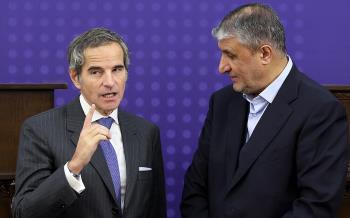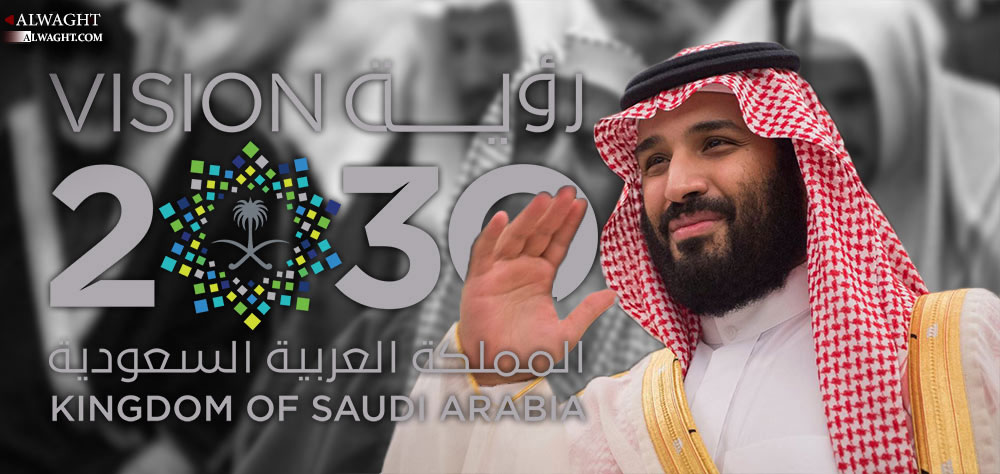Alwaght- Saudi Crown Prince Mohammed bin Salman is seeking to modernize the Saudi society using the Vision 2030, a future development roadmap he unveiled in late 2016. To this end, the 33-year-old king-in-waiting lifted some social bans on the women, moving closer to the country’s below 30-year-old young generation which accounts for 70 percent of the whole population. His main aim, in the first place, is to garner the support of this population’s layer. This was what drove him to focus on offering some social freedoms as the first step in the reform plan. In the next step, he introduced some radical reforms to the traditional class of the Saudi society, a move that some believe could draw home reactions and even possible violence by the conservatives.
Amid modernization drive, Saudi Arabia kicked off its first-ever card tournament on Wednesday in the capital Riyadh. What caught the attention was the attendance of the Adel bin Salim Al-Kalbani, a Saudi cleric who is an Imam at the Great Mosque of Mecca. This championship comes while before that the Wahhabi clerics banned playing the card game.
The Saudi crown prince has also announced that until 2030 he will build 2,500 movie theaters within 350 cinema complexes. The country’s Ministry of Culture and Information last year announced that it will for the first time in 35 years issue license for construction of a cinema complex in 2018. The official Saudi Press Agency (SPA) has reported that the AMC Entertainment Holding Inc. of the US was granted the first cinema license in Saudi Arabia and plans to open 100 theaters with the country’s Public Investment Fund.
And the third unusual move by the young prince was the show of support for the Israeli regime. Nearly a week ago, bin Salman in an interview given during his US visit told The Atlantic that he supported the Israelis’ right to have their own land, in a reference to the Palestinian lands occupied by Tel Aviv half a century ago. The posture was perceived as so radical and conflicting with the political thought ruling the Arab monarchy.
Saudi society’s traditional and fanatical fabric
Over the course of the past eight decades, Al Saud bonds with the Wahhabism gave birth to a highly conservative and fanatical class raising its strong voice against any novelty or emblems of the modernity. Wahhabi clerics have had a big role in the spread of this type of thought as they promoted their highly strict mindset in the society. The clerics in the past 80 years have compromised their independence in return for holding their power, turning into puppets in the hands of the Saudi rulers with full obedience.
For this compromise, the Wahhabi clerical body should be branded a state body with no independence. A substantiation to this claim is the brazen approval of the Wahhabi leaders of the recent wave of reforms introduced by bin Salman.
But Wahhabism believers hardly show such a flexibility to the fundamental alterations the society is exposed to. In the present time, the supporters of Wahhabi ideology have grown larger and larger in number. This has been a source of motivation for the young prince to take steps towards social changes which he hopes will burnish the Saudi image by distancing Riyadh from the old prevailing global picture of Saudi Arabia being the origin of the hard-line thought and the export of terrorism.
But it should be taken into account that cultural reversals have often triggered various degrees of social discontentment. Public dissent is a useful source providing the opposition with a platform to strengthen its position in the political rivalry. So, the power-hungry crown prince finds it highly essential to paint the majority of the society as supportive of the revolutionization process. He, to this end, invited the top Wahhabi clerics to imply that even the traditional layer of the society backs his reformatory steps.
But a clear distinction can be drawn between the state clerics and the ordinary masses who genuinely cherish a fixed ideology. The tribal Saudi society, especially the Islamist hardliners, will sure not easily come to terms with the bin Salman-led reforms. This conflict of views, the analysts suggest, will prepare the ground for opposition groups to emerge against radical revolutionization of the nation.
Bin Salman's fear of Muslim Brotherhood
Al Saud has always been cautious of the ideology of the Muslim Brotherhood, an Islamist movement active across the Muslim world. The Brotherhood seeks to establish a modern version of caliphate government in the Arab world, not thorough hierarchy but democratic elections. This line of thought is in stark contrast to the tyrannical Arab regimes to whom the elections present a rigorous red line.
Saudi king-in-waiting, therefore, is in a hard push to restrict the movement inside the kingdom. Bin Salman recently dubbed the Muslim Brotherhood a side of a “triangle of evil”, with Turkey and Iran representing the other two sides. He is, moreover, in a major propagandistic campaign to exhibit the movement a universal threat to others. Interviewed by the Time Magazine this last week, bin Salman maintained that Muslim Brotherhood seeks to rule Europe and that he was setting off the alarm bells to the world.
“Their main target is to radicalize Muslim communities in Europe. They hope that Europe in 30 years will turn to a Muslim brotherhood continent, and they want to control the Muslims, in Europe.”
Therefore, apparently imposing restrictions on the activities of the Brotherhood is also a drive for his reforms. But this issue can prove advantageous to the Brotherhood.
Now, the religious fanatics are frustrated with bin Salman’s reformation at home, Brotherhood can seize the chance of leading an anti-bin Salman domestic front and orchestrate a powerful uprising against him. The movement makes a rival to the strict Wahhabi ideology in the Sunni world as it promotes an intention to implement moderate Islamic rules with reliance on the people’s vote. This is what sparked bin Salman’s mention of the group as a top threat to the Arab kingdom and stand up to it. This leads to the notion that the deep reforms, especially those in categorical opposition to the Wahhabi thought, could mobilize the Saudi society’s religious zealots against him.



























